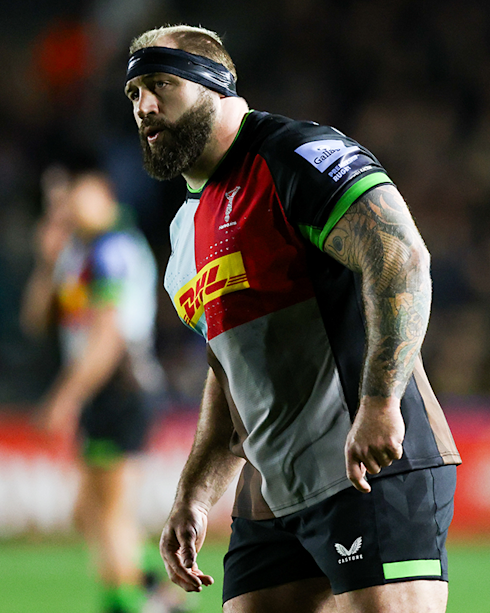
Joe Marler has risked facing consequences similar to those faced by Jack Nowell for questioning a refereeing decision during the Bayonne versus Exeter Chiefs match on Sunday. Notably, neither Marler nor Nowell participated in the game; Marler played for Harlequins on Saturday, and Nowell had joined La Rochelle last year. However, this incident draws parallels to Nowell’s previous trouble when he criticized referee Karl Dickson in a tweet, resulting in a hefty £10,000 fine.

Nowell’s fine was justified by RFU panel chair Matthew O’Grady, emphasizing the importance of respecting match officials even in disagreement. O’Grady stated, “Respect for match officials—even if we disagree with their decisions, indeed, especially if we disagree with their decisions—is a core part of rugby union.” Nowell acknowledged that his tweet, which was widely viewed, was not a fair comment and exceeded acceptable boundaries given his significant status in the game. Marler’s recent questioning of a referee’s decision puts him at a potential risk of facing disciplinary measures akin to Nowell’s.
Jack Nowell has openly acknowledged lingering bitterness about the previous situation, despite receiving widespread support from the majority of fans. Notably, Joe Marler, known for his outspoken personality, has echoed similar sentiments in a recent tweet. He exclaimed, “Talk about shooting ourselves in the foot – killing our own game!” in reference to a yellow card given to Chiefs player Dafydd Jenkins for a perceived high tackle.
The frustration expressed by figures like Joe Marler and former England and Harlequins player Nick Easter revolves around the perceived difficulty for players, particularly in the case of a lock like Jenkins, to go any lower to avoid such penalties. The issue at hand highlights concerns about the impact of officiating decisions on the flow and nature of the game, as seen from the perspective of these rugby personalities.
Fans have expressed exasperation over the decision, with one questioning, “What else is the defender expected to do? He couldn’t get any lower!? Won’t this set the precedent that all shorter players will drop when going into a tackle, knowing that the taller player is not going to be able to tackle them?” Another fan added, “That must be one of the wrongest yellows I’ve ever seen. The tackler bent at the waist and dipped low and the attacker crouched. If the ref had any common sense, he’d have said, ‘unfortunate rugby incident.'”
These reactions underscore the frustration and confusion among fans regarding the yellow card decision. They argue that the physical dynamics of the tackle, with the tackler bending at the waist and the attacker crouching, should have been taken into account. Some fans feel that the decision lacks common sense and should have been deemed an “unfortunate rugby incident” rather than resulting in a yellow card.
A fan expressed significant concern, stating that the current trend of frequent checks and decisions, especially in international matches, is making games difficult to watch. The fan shared, “I was talking to my dad about this; games are becoming a tough watch, especially the internationals. It feels like every time a heavy tackle goes in, there is a 3-minute wait while contact is checked. I know players need protection but all these cards are killing it for me.”
This sentiment reflects a broader concern among some fans about the impact of increased scrutiny and decision-making delays on the overall viewing experience. The fan acknowledges the importance of player safety but expresses frustration with the perceived excess of card decisions and prolonged interruptions during the matches.
Leave a Reply